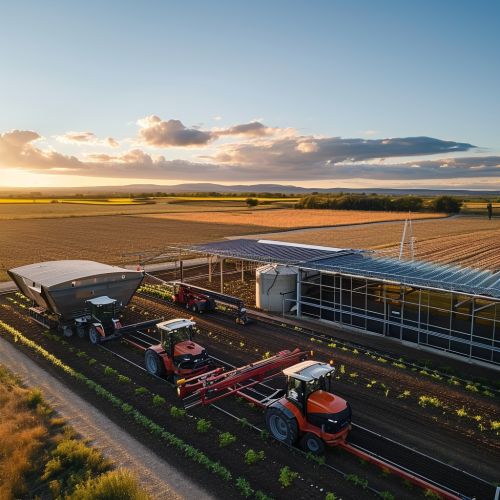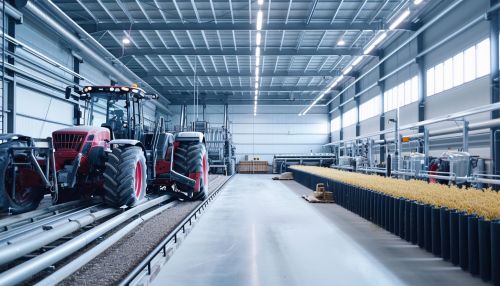Discussion: Agricultural Technology
Overview
Agricultural technology refers to the use of technological advances to increase the efficiency and productivity of agriculture. This includes the use of machinery, bioengineering, computer systems, and other innovations to improve farming practices. The development and implementation of these technologies have significantly transformed the agricultural industry, leading to increased yields, improved quality of produce, and more sustainable farming practices.
History of Agricultural Technology
The history of agricultural technology is as old as the history of agriculture itself. From the simple tools used by early farmers to the sophisticated machinery and systems used today, technological advancements have always played a crucial role in the development of agriculture.
Early Innovations
The earliest forms of agricultural technology were the simple tools used by early humans to cultivate the land. These included the plough, the sickle, and the irrigation systems used to water crops. The invention of these tools marked the beginning of the agricultural revolution, as they allowed humans to transition from a nomadic lifestyle to a settled one.
Industrial Revolution
The Industrial Revolution in the 18th and 19th centuries brought about significant changes in agricultural technology. The invention of the steam engine led to the development of the first mechanized farm equipment, such as the steam-powered tractor. This allowed for more efficient ploughing and harvesting, leading to increased agricultural productivity.
Modern Agricultural Technology
The 20th and 21st centuries have seen the development of increasingly sophisticated agricultural technologies. These include the use of genetic engineering to create high-yield, disease-resistant crops, the use of computer systems to monitor and control irrigation and fertilization, and the use of drones for crop surveillance and pest control.


Types of Agricultural Technology
There are several types of agricultural technology, each designed to address a specific aspect of farming.
Machinery
Agricultural machinery refers to the various types of equipment used in farming. This includes tractors, harvesters, and other types of machinery used for ploughing, planting, and harvesting crops.
Bioengineering
Bioengineering in agriculture involves the use of genetic engineering techniques to modify crops. This can involve the introduction of new genes to increase yield, improve resistance to pests and diseases, or enhance nutritional content.
Information Technology
Information technology in agriculture involves the use of computer systems and software to manage and optimize farming operations. This can include the use of Geographic Information Systems (GIS) for crop monitoring, precision farming techniques to optimize irrigation and fertilization, and data analytics to predict crop yields.
Robotics and Automation
Robotics and automation in agriculture involve the use of automated machinery and robots to perform tasks that were traditionally done by humans. This can include the use of drones for crop surveillance, robotic harvesters for picking fruits and vegetables, and automated milking systems for dairy farming.
Impact of Agricultural Technology
The impact of agricultural technology on the industry and society as a whole has been profound.
Increased Productivity
One of the most significant impacts of agricultural technology has been the increase in agricultural productivity. The use of machinery, bioengineering, and information technology has allowed farmers to produce more food with less labor and resources.
Improved Quality
Agricultural technology has also led to improvements in the quality of agricultural produce. The use of genetic engineering techniques has allowed for the development of crops with enhanced nutritional content, while precision farming techniques have led to more uniform and higher-quality produce.
Sustainability
Agricultural technology has also played a crucial role in promoting sustainability in farming. The use of precision farming techniques has allowed for more efficient use of resources, reducing waste and minimizing the environmental impact of farming.
Future of Agricultural Technology
The future of agricultural technology is likely to involve further advancements in machinery, bioengineering, information technology, and automation. These advancements will continue to transform the agricultural industry, leading to further increases in productivity, improvements in quality, and advancements in sustainability.
